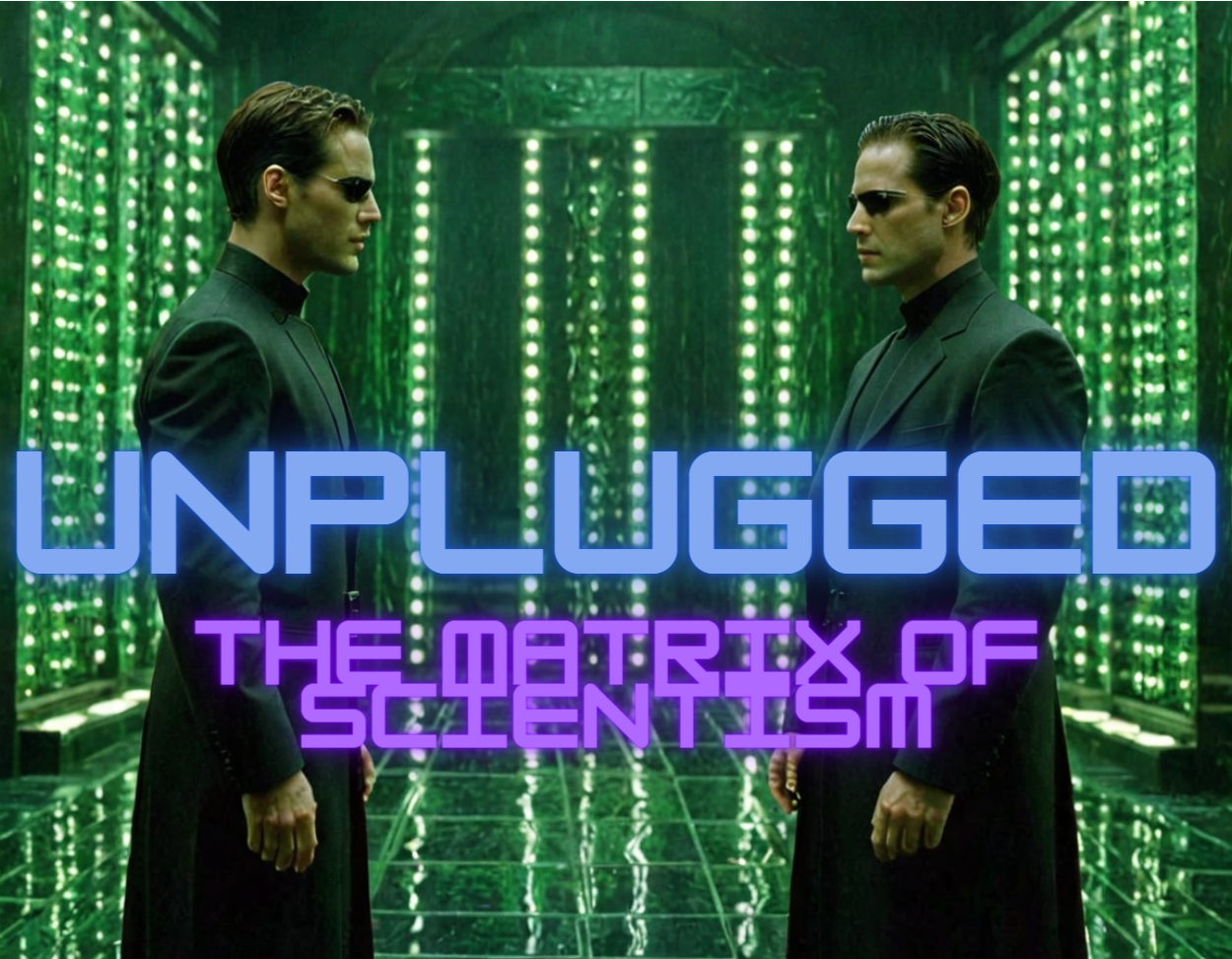
You’re sitting at your computer surfing YouTube, and the algorithm serves you a video of a content creator debunking a well-known Christian pastor. The thumbnail looks appealing enough, and the video’s title, “Evolutionist DESTROYS pastor with logic!” piques your curiosity, so you click. As you watch, you tell yourself that this ought to be fun, and you remember that modern science shows that evolution is the unequivocal proven way you came to be through random natural selection. It is the bedrock of all current scientific achievements and the singular model to make precise predictions. However, the pastor makes an argument for objective truth, and for an instant, you drop your guard and allow yourself to think about what he just said but quickly get this heavy feeling in your chest. Disgust begins to fill your heart because you find the words of the pastor ridiculous and repulsive, and your mind silently shouts at the mere thought of entertaining such absurdities and begins to remind you of your superior intelligence as it conjures an image of what your peers would think of you for considering such opinions. Disgust and fear mix into hatred as you downvote the video and refresh your feed because, after all, you are a free thinker who is not shackled by religious dogma. You may be a modern Christian who accepts Biblical theology as long as it conforms with sound, naturalistic general revelation. If you are still reading this blog, you know the point I am trying to make. Your mind is not free, and you are, at this moment, trying to decide. You click away —the story ends, you return to your life, and believe whatever you want to think. You keep reading —you stay in Wonderland and see how deep the rabbit hole goes.
Before we venture any further, we need to agree on some ground rules. Though this blog presents information, you are not required to believe any. It will also not bore you with a recap of evolutionary theory because you are well-versed in the subject. After all, you’ve been immersed in this worldview your entire life. It will, however, define critical terms: Scientific model, prominent creation models, and Biblical creation. These serve as foundations; feel free to use them as ammunition for arguments against the Bible because they are not meant to convince you of anything. In the end, this blog will offer you a singular truth. Nothing more.

Britannica defines Models as mathematical concepts that characterize events we cannot directly observe to explain physical systems and make falsifiable predictions.1 Engineers design tests for hypotheses, scientists research the findings and make observations, and the community develops a theory and agrees on a model. Scientific models are not limited to one form, as they can be computational to simulate a theory or spatial to represent an idea visually. Contrary to popular belief, they are not required to represent reality accurately, as their limitations are revised after every cycle of research and observation.2
Now that we have a basic understanding of a Model, there are four origin theories, as seen in the table below. If you want to delve deeper into variations of creation claims, the book Four Views on Creation, Evolution, and Intelligent Design is an excellent place to start. However, this section aims to take Biblical Creation at face value to understand what the Scriptures say without hermeneutical gymnastics. This part is critical to understanding the big picture.

Lexham Bible Dictionary defines creation as “The divine act of bringing the universe and all that inhabits it into existence.”3 In brief, Genesis is an account of God’s family. The story goes that God created Adam and Eve in His image and that they were innocent. Out of envy, a creature deceived them into eating from the Tree of the Knowledge of Good and Evil, which caused them to fall out of innocence. God removed them from His garden, Eden, but promised that one of Eve’s descendants would correct this fall and become the way to bridge humanity back to God to, once again, become a family. (See Gen. 1 & 2 for details). Genesis structures creation into two stages: God creates space and time in the first phase, then fills it in the second. The structure is depicted in the following images.







Roughly 2000 years ago, the descendant God promised Eve incarnated on earth. His name is Jesus of Nazareth, and He fulfilled His salvific mission, became the way through whom we can choose to return as God’s family, and left us the Spirit of Truth to help us with this task. (See Mark, Matthew, Luke, and John for details).
Now that we have a rudimentary understanding of Genesis, looking at the big picture, you have only two models, Biblical Creation and Evolution, and no one can offer you conclusive proof. All anyone can do is give you evidence to convince you or use social pressure to intimidate you into adopting a worldview. The two also do not mix because the entire narrative falls apart without Genesis. In light of this, I want you to ask yourself if removing any of these two models from textbooks would affect the scientific field in any way. You’ll need to research and answer this question for yourself, and what you find might surprise you precisely within the context of operational usefulness. Outside of this question, however, there remains an existential dilemma. On one hand, you are a child of God who fell from grace and is offered a way to return to God’s family. Your life is precious to God, and you are part of an epic of Biblical proportions in the most literal sense. On the other hand, you are a random mutation that stemmed from nothing, and your life has no meaning outside of what you want to imagine.
Do you remember the part where I promised you a singular truth and nothing more? This truth is written in your heart; though people can obscure it, nobody can take it away. This truth is revealed using your capacity to choose. You can decide to disregard everything you’ve read, or you can choose to test it. If this God is real, and your origin is exactly what Genesis says, here is how to find out for yourself. Put your worldviews aside for a moment and try to muster even the smallest amount of sincerity and, with it, sincerely ask, “Jesus, help.” That’s all it takes.
In the end, evidence comes from the world and the people around you, but proof can only come from deep within your heart because it is not a mere understanding but an existential knowing. I wish you the best and pray that God will illuminate your mind and cleanse your heart during your decision-making process because, ultimately, it’s up to you.








